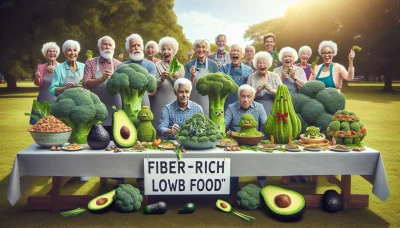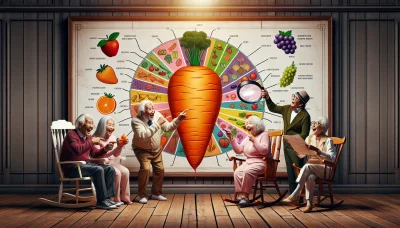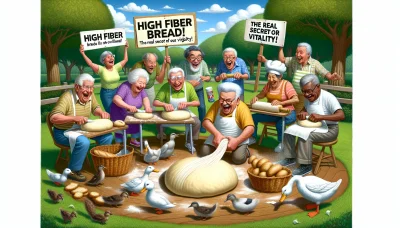Grocery stimulus for seniors Quiz
Test Your Knowledge
Question of
Understanding Grocery Stimulus for Seniors
Eligibility Criteria for Grocery Stimulus
- Age and Income Requirements
- Special Considerations for Dependents
How to Apply for Grocery Stimulus Benefits
- Necessary Documentation
- Application Submission Process
Managing Stimulus Funds Effectively
- Budgeting for Grocery Expenses
- Seeking Additional Assistance Programs
Maximizing Nutrition on a Limited Budget
Smart Shopping Strategies for Seniors
- Buying in Bulk vs. Individual Items
- Seasonal Produce Purchasing
Reading Nutrition Labels Accurately
- Understanding Serving Sizes
- Identifying Key Nutrients for Seniors
Utilizing Coupons and Discounts
- Finding and Organizing Coupons
- Digital Apps and Rewards Programs
Healthy Diet Plans for Older Adults
Importance of Balanced Meals
- Macronutrient Ratios for Seniors
- Incorporating a Variety of Food Groups
Dietary Adjustments for Age-Related Changes
- Adapting to Altered Taste Buds
- Managing Chewing and Swallowing Difficulties
Hydration and Its Role in Senior Health
- Daily Water Intake Recommendations
- Signs of Dehydration to Watch For
Addressing Common Dietary Concerns in Seniors
Coping with Appetite Loss
Identifying Underlying Causes
Understanding the root causes of appetite loss in seniors is crucial for addressing this issue effectively. These can range from medical conditions and medications to emotional factors.
Tips to Stimulate Appetite
Simple strategies can help stimulate appetite, such as setting regular meal times, creating a pleasant eating environment, and offering small, nutrient-dense meals.
Managing Dietary Restrictions and Allergies
Creating an Allergen-Free Pantry
Stocking the pantry with safe, allergen-free alternatives ensures that seniors have access to foods that won't trigger allergic reactions.
Substituting Ingredients Without Losing Flavor
Finding tasty substitutes for common allergens allows seniors to enjoy their favorite dishes without compromising on flavor or safety.
Preventing Malnutrition and Deficiencies
Recognizing Symptoms of Nutrient Shortages
Being able to identify signs of nutritional deficiencies is key to preventing malnutrition. Symptoms can include fatigue, weakness, and immune system decline.
Foods Rich in Essential Vitamins and Minerals
Incorporating a variety of foods rich in essential nutrients, such as fruits, vegetables, lean proteins, and whole grains, can help seniors maintain a balanced diet and prevent deficiencies.
The Role of Supplements in Senior Diets
When to Consider Dietary Supplements
- Discussing with Healthcare Providers
- Specific Nutrient Needs for Seniors
Types of Supplements Beneficial for Seniors
- Multivitamins and Mineral Complexes
- Herbal and Natural Supplements
Risks and Interactions with Medications
- Checking for Potential Conflicts
- Monitoring Side Effects and Reactions
Social Programs Supporting Senior Nutrition
-
Government-Funded Food Assistance Programs
- SNAP Benefits Explained
- Meals on Wheels and Other Delivery Services
-
Community Initiatives and Food Banks
- Locating Nearby Food Banks
- Volunteering and Community Engagement
-
Educational Workshops on Healthy Eating
- Finding Local Classes and Seminars
- Online Resources and Webinars
Staying Informed About Future Stimulus Updates
-
Keeping Track of Policy Changes
- Government Websites and Official Announcements
- Advocacy Groups and Newsletters
-
Networking with Other Seniors for Support
- Joining Senior Centers and Online Forums
- Sharing Experiences and Advice
-
Preparing for Annual Reassessments
- Documenting Income and Expense Changes
- Understanding Renewal Procedures












